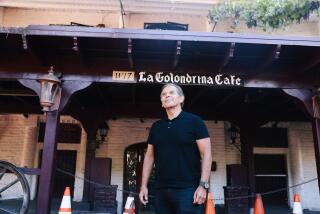Aquino Future in Philippines
- Share via
In general Mark Fineman has done a good job of covering the Philippine situation, but the articles (Jan. 29) dealing with the Manila crisis may leave some uninformed readers with the wrong impression when he says, “The principal issue was no longer Marcos or Aquino. It was communism and the failure of the Aquino government to develop a coherent policy to combat the nation’s bloody, 18-year Communist rebellion. . . . “
I shall state several points briefly that need to be expanded:
1--The “Communist” rebellion is as old as World War II, beginning with dissidents who at that time used much of their energy in fighting the Japanese invaders.
2--Under the benevolent presidency of Ramon Magsaysay when underlying issues of landlessness were dealt with, progress was made in stopping Communist expansion.
3--Under Ferdinand Marcos and some of the present armed forces leaders, communism grew rapidly.
4--For the past year (a brief period in a nation’s story) President Aquino has been using many of the same tactics of President Magsaysay, with some measure of success.
5--The Communist rebellion, as your own editorial pages have pointed out, will never be fully resolved until a serious effort at land reform is undertaken. The landless tend to rebel in desperation and Communist propaganda seems to offer them a straw of hope. (Incidentally, the U.S. government never from 1898 until 1946 dealt seriously with the problem of the landless peasants, the leftovers of the laborers for the Spanish hacienderos .) Many of the Marcos die-hards, those not simply opportunists, are Ilocanos. The land of the Ilocanos has always been primarily an area of small landowners who have struggled for survival but have not shown the humility and despair of never owning a piece of land. Ilocanos, some of them my best personal friends, also tend to be very tribal in their loyalties and suspicious of those who “rule” in Manila.
Give Cory a chance! Let the United States release money not for arms but to help implement a program of land for the poor.
EUGENE A. HESSEL
Pasadena
More to Read
Sign up for Essential California
The most important California stories and recommendations in your inbox every morning.
You may occasionally receive promotional content from the Los Angeles Times.













